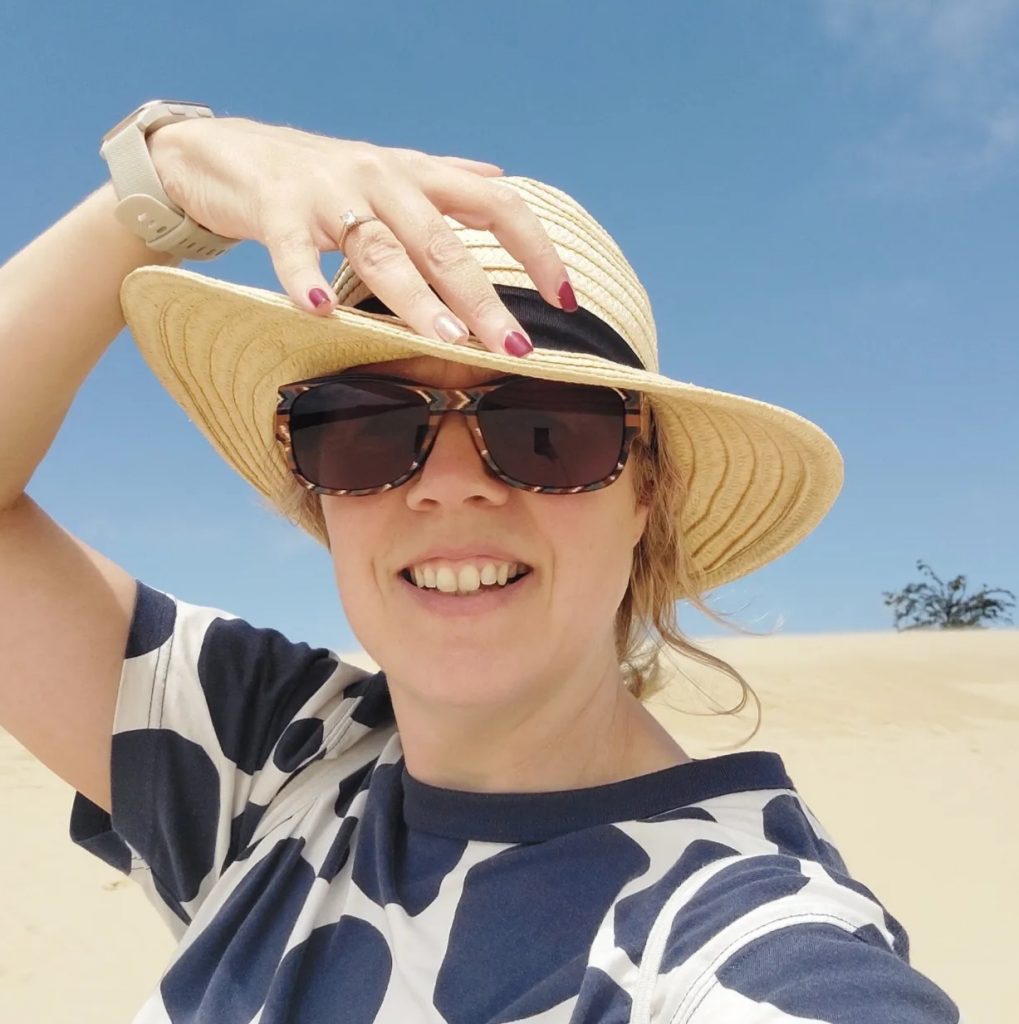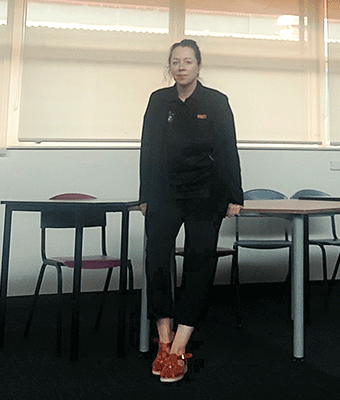School support workers: the quiet heroes of Australian schools. From teachers aides, to learning support officers, to Aboriginal education officers, they nurture, support and empower. And some are now using their experience to step up to the front of the classroom. We spoke to Erica, one of our students studying to make the switch to teaching.

At the time of this interview, Erica is completing our Collaborative Teacher’s Aide Pathway program while studying a Bachelor of Educational Studies.
Our chat with Erica
What made you want to switch to teaching?
“Amid COVID-19, my 12-year freelance writing career hit a wall. As such, I spent time with my children while they tackled remote learning. Surprisingly, I was probably the only parent in my friendship circle who enjoyed the whole homeschooling gig. I appreciated the opportunity to watch and help my children learn and grow.
“My son’s teachers suggested an idea: why not become a classroom assistant? So, I signed up to undertake my Certificate IV in Education Support, a full-time course through TAFE, while Melbourne’s was in extended lockdown. Part of the course was to complete 100 hours of practical experience, and I chose to do that in a high school.
The educational environment resonated with me and I loved being in the classroom. Engaging with and assisting young people, nurturing conversations, witnessing students’ progress and providing guidance brings a huge sense of job satisfaction and fulfillment.
“Approximately one year into my new role as an integration aide, I considered stepping up to become a teacher. The idea was reinforced when a student in Year 7 said, out of the blue, that I should teach English. Considering I would be entering university at the age of 40-something, I had reservations. Coincidentally, a friend tagged me in a Facebook post about Charles Sturt’s new Teacher’s Aide Pathway, which considers past teacher’s aide experience and qualifications, and provides credits toward a Bachelor of Educational Studies/Master of Teaching course. This was the encouragement I needed to give it a go.
“Now that I am past the halfway mark of my degree, I will soon share my love for literature, language and human culture with these fabulous young minds who are going to shape the future. It is a rewarding and inspiring journey.”
Did you have a favourite teacher growing up? Why did you like them?
“My memory is a little foggy, but I do remember a few!
“My French teacher motivated my pursuit of languages. I embarked upon both French and German at GCSE level, which is the equivalent to the Victorian Certification of Education (VCE). I participated in an exciting French exchange experience with the aforementioned French teacher.
“My art teacher nurtured my passion for creativity and drew the best out of my artistic endeavours.
“Beyond achieving good grades, I recall my Year 6 teacher encouraging the class to keep up with global news. Each morning began with lively classroom discussions and debates about world affairs. I strongly believe that this early emphasis on global awareness fostered critical thinking, empathy and expanded perspectives. And it prepared us to be informed and engaged in an increasingly interconnected world.”
What area of education are you choosing to specialise in?
“Since I am passionate about literature, language proficiency, and human societies and cultures, I selected English and humanities as my key learning areas.”
How has the teacher’s aide program helped you switch to teaching?
“The Teacher’s Aide Pathway has granted 64 credit points toward my Bachelor of Educational Studies/Master of Teaching program, significantly reducing the time required to complete my degree.”
What challenges have you encountered in your study and how have you tackled them?
“Balancing studies, work, parenting, social commitments and more can be challenging! To allocate more time for my studies, I transitioned from a five-day to a four-day work week.”
Any tips for future students embarking on the program?
Absolutely!
- If you’re committed to your study, be prepared to undertake a lot of reading.
- Avoid procrastination!
- Stop saying yes to every social event and carve out time to study instead.
- As soon as you have access to your subject materials, head straight to the assessments and take note of your due dates.
- Don’t delay your assessments until the eleventh hour. Chip away at your tasks every week and as you move towards your assessment due date, ramp it up.
- Save your tasks on Google docs so you don’t lose your work.
- Attend the online lectures, if feasible. They will significantly enhance your understanding of your chosen subjects.
- If your subject offers access to a free tutor, as certain units do, make the most of this resource.
Finally, where would you like to take your career in the future?
“I have been considering pursuing a PhD to further my studies… but for the time being, I’ll focus on gaining practical classroom teaching experience.”
Want to switch to teaching like Erica?

If you’re inspired by Erica’s story, learn more about our teaching degrees, as well as teaching pathways specifically designed to help school support staff switch to teaching.
And remember, you can always reach out to our friendly team for more info.


You must be logged in to post a comment.